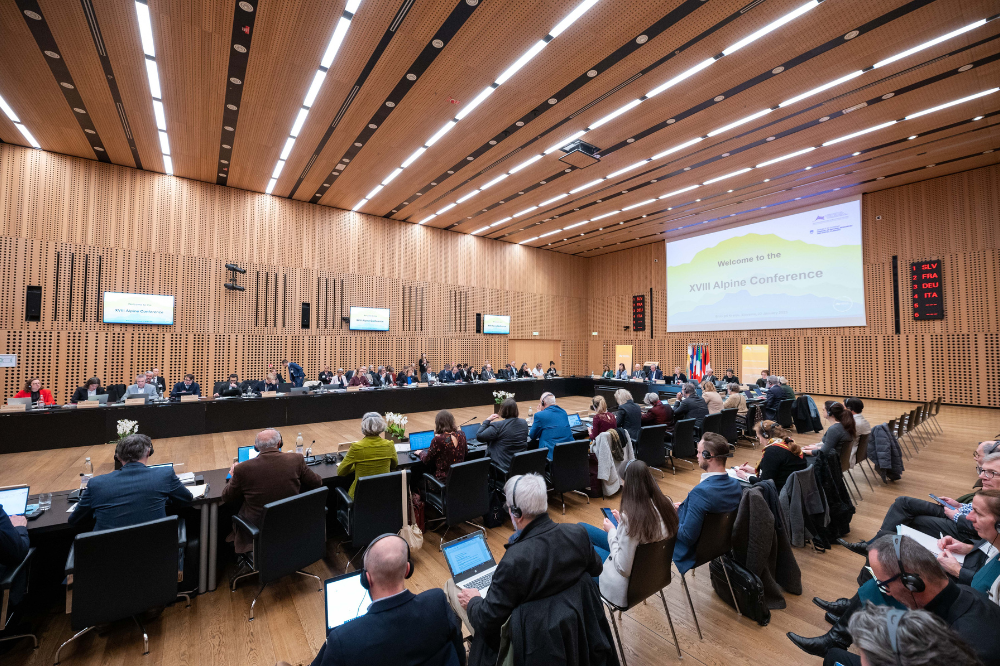Working together for the future of the Alps
On the 22nd of January the Slovenian Presidency of the Alpine Convention hosted the Alpine Conference in Brdo/SI. A central theme was the quality of life in the Alpine region, which is also the subject of the tenth Report on the State of the Alps.
Every two years, the environment ministers of the Alpine states come together to develop joint strategies and tackle challenges – as they did on 22 January 2025. Despite the rise of populist movements, all ministers emphasised the importance of cross-border cooperation and the fight against the climate and biodiversity crisis, regardless of their political orientation. All basic reports were approved unanimously and without criticism.
A clear commitment to the Alpine Convention
In his speech, Kaspar Schuler, Executive Director of CIPRA International, emphasised the need to preserve the cross-border spirit of the Alpine Convention: “We at CIPRA, as an observer organisation that stood at the cradle of the Alpine Convention, will never sell the Alpine Convention and its spirit to populists. But it needs all of us. Just as we must oppose the rise of fascism in our home countries, we must all participate in the further development of the Alpine Convention – with no ifs or buts.”
Quality of life as a political goal
With the handover of the presidency to Italy, the Slovenian presidency presented the tenth Report on the State of the Alps at the end of its term. While quality of life was long regarded as an individual matter, it is now a central objective of public policy. The report shows ways in which environmental, economic and social issues can be harmonised. “Only cross-border cooperation can ensure a sustainable and liveable Alpine region”, emphasises Alenka Smerkolj, Secretary General of the Alpine Convention, in her foreword. Her mandate was extended by three years at the conference, making her the first Secretary General to remain in office for a total of nine years. The report was widely praised: Germany’s Environment Minister Steffi Lemke emphasised that important problems such as rising property and building land prices were clearly identified. Liechtenstein’s Minister Sabine Monauni emphasised that such reports build a bridge to the population and that inclusion – the involvement of the widest possible range of population groups – is central to overcoming many challenges.
The tenth Report on the State of the Alps is already available in English here and will be available in all Alpine languages from the end of February 2025.


